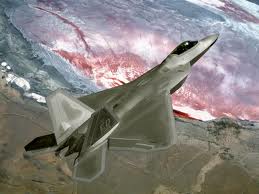I can't find any thing on the internet or in texts that explains how the Anglo-Japanese alliance came to end...I've discovered it allegedly ended around 1922-1923 but I have no idea why? If any history buffs could enlighten me that would be fabulous, purely for the interest this has nothing to do with my exam! Any discussion on the alliances/ententes during the great wars is welcome too as I'd consider that relevant as long as personal politics are left out to follow forums guidelines. Some fun historical discussion should come of this!
43 posts
• Page 1 of 2 • 1, 2
Anglo-Japanese Alliance 1902-For the history nerds
I can't find any thing on the internet or in texts that explains how the Anglo-Japanese alliance came to end...I've discovered it allegedly ended around 1922-1923 but I have no idea why? If any history buffs could enlighten me that would be fabulous, purely for the interest this has nothing to do with my exam! Any discussion on the alliances/ententes during the great wars is welcome too as I'd consider that relevant as long as personal politics are left out to follow forums guidelines. Some fun historical discussion should come of this!
-

Pants - Posts: 3440
- Joined: Tue Jun 27, 2006 4:34 am
Both nations were burgeoning world powers, having previously been viewed as more regional players prior to WWI. In some circles it was actually felt that whoever "won the Pacific" would be the next big player in world affairs. Connected to this, both nations were burgeoning colonial/imperial powers, but their areas of influence had substantial overlap (the Pacific). From my understanding Japan felt that the US was encroaching far too close to its home territory and was threatened by American colonies in places like the Philippines. The US, on the other hand, felt it was important to secure routes westward to Asia.
Post-WWI China is another matter you should investigate. It remains a politically charged matter so it's a tricky matter to discuss here on the forums, and it also means many sources carry very strong views on the issue. But there's a lot out there about this, and it's another situation where Japan and the US were at odds.
-

Hazel Sian ogden - Posts: 3425
- Joined: Tue Jul 04, 2006 7:10 am
From http://en.wikipedia.org/wiki/Anglo-Japanese_Alliance#Demise_of_the_treaty these particular passages seem relevant:
(Probably should check the works cited in the article, of course, being wikipedia.)
On July 8, 1920, the two governments issued a joint statement to the effect that the alliance treaty "is not entirely consistent with the letter of that Covenant (of the League of Nations), which both Governments earnestly desire to respect".
The Commonwealth had decided to sacrifice its alliance with Japan in favor of good will with the United States, yet it desired to prevent the expected alliance between Japan and either Germany or Russia from coming into being.
(Probably should check the works cited in the article, of course, being wikipedia.)
-

^_^ - Posts: 3394
- Joined: Thu May 31, 2007 12:01 am
On the simplest level? The threat the alliance was meant to deal with (Russian spheres of influence in Asia) wasn't really a threat anymore; with the Russian civil war that had just gone on (not to mention the Russian fleet being humiliated and smashed by Japan only three years after the alliance was made), Japan felt that its sphere of influence in Manchuria was secure and that it could turn its eyes southward - specifically, including British/Austrialian holdings in the Pacific, as well as China where Britain had Hong Kong as well as other bits of influence. In the end, really, I don't think either power seriously expected the agreement to last forever; Japan needed some breathing room to establish itself as an international power, while Britain really needed Russia distracted from Central Asia, as well as an extra power to use against Germany in the Pacific (which Japan did fairly well in World War I). Once those two were no longer a threat after 1919, there was no more need for an alliance and they turned against each other instead. It's more complicated than that (it always is, after all), but eh, this is your essay, do your own research into the details. 

-

Justin Hankins - Posts: 3348
- Joined: Fri Oct 26, 2007 12:36 pm
From http://en.wikipedia.org/wiki/Anglo-Japanese_Alliance#Demise_of_the_treaty these particular passages seem relevant:
(Probably should check the works cited in the article, of course, being wikipedia.)
(Probably should check the works cited in the article, of course, being wikipedia.)
I wonder why they would choose America over that.
-

Michelle Serenity Boss - Posts: 3341
- Joined: Tue Oct 17, 2006 10:49 am
I would have stuck with Japan, that way you may end up allies with Russia and/or Germany.
I wonder why they would choose America over that.
I wonder why they would choose America over that.
-

Jessica Colville - Posts: 3349
- Joined: Wed Oct 18, 2006 6:53 pm
An alliance with Russia might have been viewed with unease considering the state of their politics. The US was expanding their influence in the pacific at the time, they might have seemed like a more effective ally to protect Australia, or something like that. And as I recall, the US was getting a lot closer to China in the period between the world wars.
-

barbara belmonte - Posts: 3528
- Joined: Fri Apr 06, 2007 6:12 pm
Because it was the 1920s and everyone was a racist, Western governments saw Asians as somewhat higher developed monkeys in those days. Any treaties and alliances they had with them were purely out of necessity, not because they liked them. You should see some of the American anti-Japanese propaganda posters from WW2, that stuff is disgusting.
Also im pretty sure the Brits had pretty positive views of Japan, I remember hearing they thought they were pretty civil people.
The attitude from then annoys me, not jsut the racism. But Japan bombs pearl harbour, so America responds by nuking 2 civilian areas, and putting Japanese Americans into camps. Its like someone punches me, so I stab them.
-

Mel E - Posts: 3354
- Joined: Mon Apr 09, 2007 11:23 pm
Still even if your racist, you should see which one is the best deal. Get on the goodside of 2 powerful countries, or America. Which wasnt that importnat at the time.
Also im pretty sure the Brits had pretty positive views of Japan, I remember hearing they thought they were pretty civil people.
The attitude from then annoys me, not jsut the racism. But Japan bombs pearl harbour, so America responds by nuking 2 civilian areas, and putting Japanese Americans into camps. Its like someone punches me, so I stab them.
Also im pretty sure the Brits had pretty positive views of Japan, I remember hearing they thought they were pretty civil people.
The attitude from then annoys me, not jsut the racism. But Japan bombs pearl harbour, so America responds by nuking 2 civilian areas, and putting Japanese Americans into camps. Its like someone punches me, so I stab them.

-

Rachel Cafferty - Posts: 3442
- Joined: Thu Jun 22, 2006 1:48 am
The attitude from then annoys me, not jsut the racism. But Japan bombs pearl harbour, so America responds by nuking 2 civilian areas, and putting Japanese Americans into camps. Its like someone punches me, so I stab them.
Wasn't quite that simple. Japan had been waging war across eastern Asia and the pacific for many years before they started rumbling with America, and then there were plenty of battles before the bombings. You also need to consider what the alternative to the atomic bombing was. A land invasion would have caused an unprecedented amount of casualties due to how Japanese society had been conditioned. Defeated soldiers and even civilians on Japanese controlled islands killed themselves rather than letting themselves get captured by the Americans. The Soviets would inevitably join in on invading the Japanese mainland, and the aftermath of that would also be catastrophic for Japan's future. You'd end up with another north/south division.
-

Suzy Santana - Posts: 3572
- Joined: Fri Aug 10, 2007 12:02 am
Still even if your racist, you should see which one is the best deal. Get on the goodside of 2 powerful countries, or America. Which wasnt that importnat at the time.
Also im pretty sure the Brits had pretty positive views of Japan, I remember hearing they thought they were pretty civil people.
Also im pretty sure the Brits had pretty positive views of Japan, I remember hearing they thought they were pretty civil people.
Civil, yes, but in their minds they were still "orientals" and therefore inherently untrustworthy, just in a slightly more civil manner than others in the region. Also, Britain owed a lot of debt to the US after World War I, and keeping on their good side was a way of possibly being able to negotiate a better deal later on.
(And there was no chance in any way of Britain voluntarily allying with the Soviet Union - they only did in World War II because Hitler invaded the latter after the former was already in the war - and Germany wasn't considered all that trustworthy either, and too much of a threat to British interests. Not that staying in an alliance with Japan would have made the Soviet Union any happier, quite the opposite in fact once said country decided to look at Manchuria again in the late 1930s, and I don't think Germany would have cared either way if Britain was in an alliance with Japan or not.)
-

emily grieve - Posts: 3408
- Joined: Thu Jun 22, 2006 11:55 pm
Wasn't quite that simple. Japan had been waging war across eastern Asia and the pacific for many years before they started rumbling with America, and then there were plenty of battles before the bombings. You also need to consider what the alternative to the atomic bombing was. A land invasion would have caused an unprecedented amount of casualties due to how Japanese society had been conditioned. Defeated soldiers and even civilians on Japanese controlled islands killed themselves rather than letting themselves get captured by the Americans. The Soviets would inevitably join in on invading the Japanese mainland, and the aftermath of that would also be catastrophic for Japan's future. You'd end up with another north/south division.
-

YO MAma - Posts: 3321
- Joined: Thu Dec 21, 2006 8:24 am
Wasn't quite that simple. Japan had been waging war across eastern Asia and the pacific for many years before they started rumbling with America, and then there were plenty of battles before the bombings. You also need to consider what the alternative to the atomic bombing was. A land invasion would have caused an unprecedented amount of casualties due to how Japanese society had been conditioned. Defeated soldiers and even civilians on Japanese controlled islands killed themselves rather than letting themselves get captured by the Americans. The Soviets would inevitably join in on invading the Japanese mainland, and the aftermath of that would also be catastrophic for Japan's future. You'd end up with another north/south division.
Suicide > death from radiation burns and necrosis
People may try and defend dropping the bombs. But I cant agree with it at all.
Civil, yes, but in their minds they were still "orientals" and therefore inherently untrustworthy, just in a slightly more civil manner than others in the region. Also, Britain owed a lot of debt to the US after World War I, and keeping on their good side was a way of possibly being able to negotiate a better deal later on.
(And there was no chance in any way of Britain voluntarily allying with the Soviet Union - they only did in World War II because Hitler invaded the latter after the former was already in the war - and Germany wasn't considered all that trustworthy either, and too much of a threat to British interests. Not that staying in an alliance with Japan would have made the Soviet Union any happier, quite the opposite in fact once said country decided to look at Manchuria again in the late 1930s, and I don't think Germany would have cared either way if Britain was in an alliance with Japan or not.)
(And there was no chance in any way of Britain voluntarily allying with the Soviet Union - they only did in World War II because Hitler invaded the latter after the former was already in the war - and Germany wasn't considered all that trustworthy either, and too much of a threat to British interests. Not that staying in an alliance with Japan would have made the Soviet Union any happier, quite the opposite in fact once said country decided to look at Manchuria again in the late 1930s, and I don't think Germany would have cared either way if Britain was in an alliance with Japan or not.)
They trusted them enough, to make them stronger.
They may not trust eachother, but its better to atleast try and be closer, to minimize the chances of them [censored] eachother up.
Didnt Nazi Germany want the UK to join them ? If the UK was allied with Japan, that would make things smoother.
-

Life long Observer - Posts: 3476
- Joined: Fri Sep 08, 2006 7:07 pm
People may try and defend dropping the bombs. But I cant agree with it at all.
The bombing itself was obviously a terrible thing, but the occupation afterwards helped to reform Japan into the modern nation it is today.
-

louise fortin - Posts: 3327
- Joined: Wed Apr 04, 2007 4:51 am
Imperial ambitions and realist manuevering. Britain had just been dragged into WW1 by being bound by complicated treaties, and foresaw the upcoming power struggles of a rising Japan. Russo-Japanese war, the Japan-Korea annexation treaties, were just tell-tale signs of Japanese imperial ambitions.
The American Empire, the Phillipines and the Pacific, were too close to comfort to Japan for Britain to responsibly remain "allies" with Japan.
Also, the nuclear attacks on Japan were also a way to intimidate the Soviets, when the Allies met at the Malta conferance a few days later.
The American Empire, the Phillipines and the Pacific, were too close to comfort to Japan for Britain to responsibly remain "allies" with Japan.
Also, the nuclear attacks on Japan were also a way to intimidate the Soviets, when the Allies met at the Malta conferance a few days later.
-

Jeffrey Lawson - Posts: 3485
- Joined: Tue Oct 16, 2007 5:36 pm
US pretty much forced the Japanese into the war though, with all their economic embargos, especially on oil, that were destroying the Japanese economy in the decade before the war.
Or they could've just left China. Not like that was going to happen given the mindset of the Japanese government but it's not like the embargo just came out of the blue unprovoked.
-

Laura Cartwright - Posts: 3483
- Joined: Mon Sep 25, 2006 6:12 pm
I think the idea was that a land invasion would cost more lives on both sides, and the bomb would scare them into surrender.
The bombing itself was obviously a terrible thing, but the occupation afterwards helped to reform Japan into the modern nation it is today.
The bombing itself was obviously a terrible thing, but the occupation afterwards helped to reform Japan into the modern nation it is today.
But it didnt, and so they dropped another one... On Civilians again.
Japan could have been like today, without the bombing. Occupation I dont mind (though I think America shouldnt really be there anymore, and Japan should be able to defend itself now. (I think the UK has bases in Germany still, no idea why. We shouldnt be there imo.) but there were better ways to do things, instead of bombing civilians. Thats just wrong, and you cant justify it. Its the sort of [censored] is the taliban does.
-

Jaylene Brower - Posts: 3347
- Joined: Tue Aug 15, 2006 12:24 pm
It may have cost more lives, but its still better than nuking civilians.
But it didnt, and so they dropped another one... On Civilians again.
Japan could have been like today, without the bombing. Occupation I dont mind (though I think America shouldnt really be there anymore, and Japan should be able to defend itself now. (I think the UK has bases in Germany still, no idea why. We shouldnt be there imo.) but there were better ways to do things, instead of bombing civilians. Thats just wrong, and you cant justify it. Its the sort of [censored] is the taliban does.
But it didnt, and so they dropped another one... On Civilians again.
Japan could have been like today, without the bombing. Occupation I dont mind (though I think America shouldnt really be there anymore, and Japan should be able to defend itself now. (I think the UK has bases in Germany still, no idea why. We shouldnt be there imo.) but there were better ways to do things, instead of bombing civilians. Thats just wrong, and you cant justify it. Its the sort of [censored] is the taliban does.
Anywhere from 10-33% of the civilian population of Okinawa was killed during the conventional invasion. The atomic bombings killed about .003% of Japan's population if you take the highest casualty estimates. The atomic bombings, while certainly awful, were the most moral and effective option available to end the war.
-

^~LIL B0NE5~^ - Posts: 3449
- Joined: Wed Oct 31, 2007 12:38 pm
Anywhere from 10-33% of the civilian population of Okinawa was killed during the conventional invasion. The atomic bombings killed about .003% of Japan's population if you take the highest casualty estimates. The atomic bombings, while certainly awful, were the most moral and effective option available to end the war.
I'm not really picking sides, but does that factor in the collapse of infrastructure a nuke causes? I think it'd be responsible for maybe 80% of the deaths, 20% being the actual nuke/s
-

Alan Whiston - Posts: 3358
- Joined: Sun May 06, 2007 4:07 pm
The Japanese nation would have suffered moreso if the war hadn't ended at that point, and allowed the Soviets to invade. The use of the nuclear weapons both secured Japan in US hands, brought an end to the war across Asia, and fended off the Russians.
And no, I think you're absolutely wrong ratslayer. Japan would not be the same as it is today if the war didn't end in 1945 and the atomic weapons were not used. For better or for worse is a trivial distraction in historical terms.
And no, I think you're absolutely wrong ratslayer. Japan would not be the same as it is today if the war didn't end in 1945 and the atomic weapons were not used. For better or for worse is a trivial distraction in historical terms.
-

Angelina Mayo - Posts: 3427
- Joined: Wed Jan 24, 2007 4:58 am
Anywhere from 10-33% of the civilian population of Okinawa was killed during the conventional invasion. The atomic bombings killed about .003% of Japan's population if you take the highest casualty estimates. The atomic bombings, while certainly awful, were the most moral and effective option available to end the war.
We call people who do that terrorists and murderers. Im not going to hate the current people doing those things, then say America doing it was acceptable.
-

Brad Johnson - Posts: 3361
- Joined: Thu May 24, 2007 7:19 pm
I'm not really picking sides, but does that factor in the collapse of infrastructure a nuke causes? I think it'd be responsible for maybe 80% of the deaths, 20% being the actual nuke/s
As far as I'm aware I used the high-end estimates that included people dying later of radiation sickness and cancer as well. I could be wrong. Regardless you can multiply the number of dead a dozen times over and it still doesn't even come close to the horrific losses an invasion would've entailed.
Bombing civilians, is bombing civilians.
We call people who do that terrorists and murderers. Im not going to hate the current people doing those things, then say America doing it was acceptable.
We call people who do that terrorists and murderers. Im not going to hate the current people doing those things, then say America doing it was acceptable.
The point you're ignoring is that civilians were going to die regardless. What's more acceptable about getting a whole lot more of them killed in order to avoid direct bombings?
-

Devin Sluis - Posts: 3389
- Joined: Wed Oct 24, 2007 4:22 am
Bombing civilians, is bombing civilians.
We call people who do that terrorists and murderers. Im not going to hate the current people doing those things, then say America doing it was acceptable.
We call people who do that terrorists and murderers. Im not going to hate the current people doing those things, then say America doing it was acceptable.
A large percentage of the civillian population was preparing to defend their homeland against an invasion, which probably would have been killed in combat. That would have amounted to a lot more civillian deaths in combat than the atomic bombs caused.
-

Andrea P - Posts: 3400
- Joined: Mon Feb 12, 2007 7:45 am
I'd say lives are lives, no matter if it's soldier or civilian. No one can know for sure obviously since a land invasion never happened, but with the civilian behavior in mind on the US-captured islands I think the civilian casualties would still be absurdly high.
It's hard to justify the nukes, I don't think there is any ethically "right" decision when it comes to war. When you look at the potential alternatives the bombing simply appears to be the least terrible one. I'm also fairly sure conventional air raids yielded more death and destruction than the atomic bombs. I don't know if that was the case with the conventional bombings in Japan, but I'm pretty sure a lot more people died from the infamous firebombing of Dresden. Bombing mainly civilian targets in cities was a demoralizing tactics both the axis and allies used, after being "tested" in the Spanish civil war.
It's hard to justify the nukes, I don't think there is any ethically "right" decision when it comes to war. When you look at the potential alternatives the bombing simply appears to be the least terrible one. I'm also fairly sure conventional air raids yielded more death and destruction than the atomic bombs. I don't know if that was the case with the conventional bombings in Japan, but I'm pretty sure a lot more people died from the infamous firebombing of Dresden. Bombing mainly civilian targets in cities was a demoralizing tactics both the axis and allies used, after being "tested" in the Spanish civil war.
-

CRuzIta LUVz grlz - Posts: 3388
- Joined: Fri Aug 24, 2007 11:44 am
The firebombing of Tokyo of March 10th was the single deadliest air raid in WW2, greater than Dresden.
-

Luis Longoria - Posts: 3323
- Joined: Fri Sep 07, 2007 1:21 am
43 posts
• Page 1 of 2 • 1, 2
